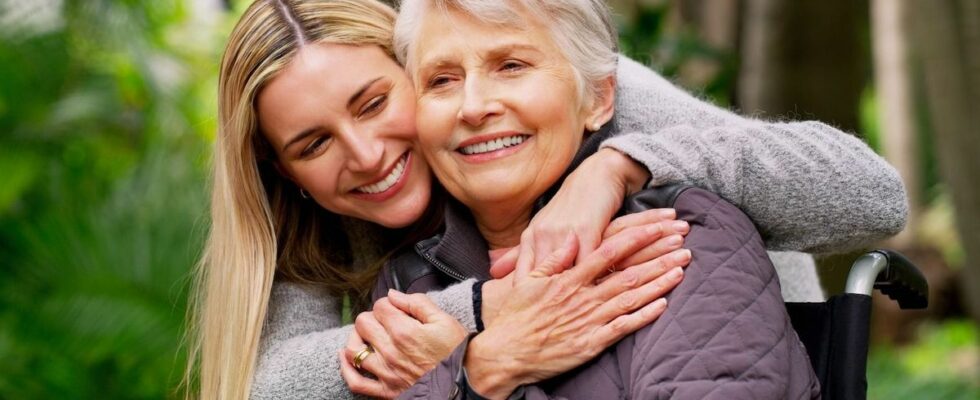Published on
Updated
Reading 3 min.
Marie Lanen
Head of parenting sections (baby, pregnancy, family), psychology and beauty

France has more than 9 million caregivers. These people sometimes have heavy responsibilities and can find themselves in situations of exhaustion. To offer suitable respite solutions, the High Authority of Health (HAS) has developed recommendations. Here they are.
Parents, children (for some minors), spouses, friends, sometimes even neighbors… More than 9 million French people declared in 2021 that they provided regular help to a loved one with a disability or loss of autonomy. A situation that is unlikely to improve when we observe societal developments, particularly the aging of the population or people staying at home. If everyone can one day find themselves helping a loved one on a daily basis, temporarily or permanently; It is essential to better support these caregivers with regard to the exhaustion caused by this burden and the difficulties that result from it.
The principle of the “oxygen mask theory”: an issue in identifying caregivers
“To continue to take care of others, you must also be able to take care of yourself.“, this sentence perfectly illustrates the theory of the oxygen mask. To better identify caregivers (some do not recognize themselves as such) and support them in a relevant way, the HAS recommends doing identifying the caregiver a reflex among health professionalsthe medico-social sector, but also more broadly the actors of National Education, Higher Education, the world of work, and any person in contact with caregivers depending on the context (neighbors, friends for example). Particular attention must be paid to minor caregivers. Indeed, in France there are 500,000 minors (children/adolescents) who are in this complex situation. More difficult to identify, their early identification is nevertheless essential to set up respite solutions that are specifically adapted to them, such as academic support or help with managing administrative matters.
Signs to look out for in caregivers
According to the HAS, certain signs can highlight difficulties linked to a care situation:
- Physical/mental exhaustion;
- Social isolation;
- The breakdown of care;
- Frequent sick leave;
- Academic difficulties.
But before getting to that point, the High Authority for Health recommends better identifying caregivers in order to open up discussions about their situation and enable them to find appropriate help before showing signs of exhaustion. Thus, assessing the caregiver’s environment (relatives, finances, etc.) is crucial. To help professionals, the HAS offers an assessment grid that addresses different themes.
Urgent respite solutions
The law of December 28, 2015 relating to the adaptation of society to aging established a right to respite for caregivers. This right means that any carer can request support and a temporary place in an establishment, day care, holiday stay, etc. for their loved one. In its recommendations, the HAS calls on health professionals to discuss this notion of respite and to show all the advantages. These solutions can obviously take different forms depending on the difficulties encountered by the caregiver. These solutions are essential for:
- Relieve the caregiver;
- Be relayed if necessary (at home or outside);
- Better reconcile the caregiver’s constraints (personal and professional life);
- Being assisted as needed in daily activities such as carrying out procedures;
- Allow caregivers to take time for themselves (see friends or relatives, rest, take care of themselves, etc.),
- Enabling caregivers to take care of their health.
While these benefits seem obvious, according to the French Association of Carers, 48% of them say they have a chronic illness, 29% feel anxious and stressed and 25% say they feel physical and moral fatigue. Figures which show to what extent the health of caregivers constitutes a major issue for society.

